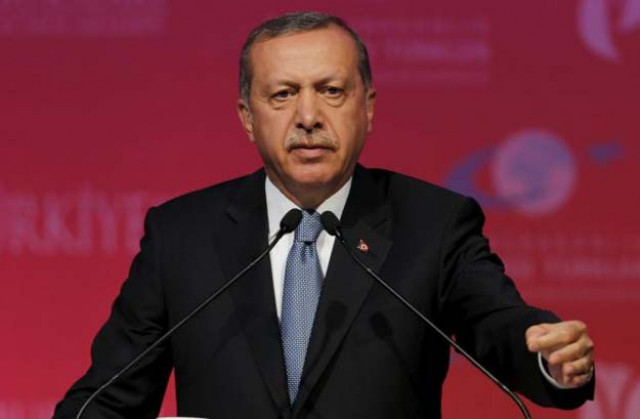The Turkish emergency
Turkey has entered the unknown in every sense of the word

Turkish President Tayyip Erodagan. PHOTO: REUTERS
There has been surprise at the speed with which political opponents of President Erdogan have been picked up, but it is reported that Turkish intelligence agencies had, prior to the coup, identified a communication network used by opponents of President Erdogan that enabled them to move with pinpoint accuracy. The streets — and the media — have been swamped by images of hundreds of thousands of people celebrating the failure of the coup. What the world is not seeing are the faces and hearing the voices of those that sought to bring down the president, and it may be that their faces and voices are not going to be seen or heard for many years, so complete is the governmental crackdown.

Had the coup succeeded the consequences could have been even worse than what is playing out today — the military would have suspended all democratic process and probably persecuted Erdogan and his allies (as they are now persecuted themselves) and the spectre of civil war was a possibility. It still is, but with key military players now in custody or suspended it may be assumed that those still in play are Erdogan loyalists and not a threat in the sense that they would be the muscle of any future uprising. As it is the IS and al Qaeda will be seeking to exploit the cracks in the armour that the failed coup revealed, as will dissident Kurds to the south-east of the country.
Given the key role that Turkey plays in fighting the IS the US and its Nato allies similarly engaged are going to be at the very least nervous in the short term — the commander of the Incirlik airbase was arrested as being complicit in the coup attempt — but there is at least some easing of tension in respect of the 2.7 million refugees from the Syrian war. President Erdogan appears disinclined to send them back whence they came — which itself flies in the face of much public sentiment that is noisily anti-refugee.
The Turkish state as a whole is going to suffer a degradation across the entire spectrum of everyday life. Education at college and university level will take years to recover. The military is going to have to rebuild an entire cadre of officers. Likewise the civil service and the media. There are threats to reintroduce the death penalty and the Erdogan government is now driven by fear and paranoia, and missed the chance to use the failed coup as a potential catalyst for reconciliation in a desperately polarised nation.
The ‘cleansing’ of state institutions of a ‘virus’ is going to do no more than act as an incubator for the coups of the future, successful or otherwise, and the illusion of stability in Turkey is in ruins. It may be that the state of emergency will bring a kind of equilibrium but the scope of the purge is alarming and points to a state retreating in on itself, rolling back rather than advancing the institutions of democracy and moving towards a dictatorial authoritarianism. Turkey today makes the divisions and conflicts within our own society seem almost modest by comparison, dreadful as they are. A coup in Pakistan? We think not, and save your sweets for a more worthy celebration.
Published in The Express Tribune, July 22nd, 2016.
Like Opinion & Editorial on Facebook, follow @ETOpEd on Twitter to receive all updates on all our daily pieces.















COMMENTS
Comments are moderated and generally will be posted if they are on-topic and not abusive.
For more information, please see our Comments FAQ